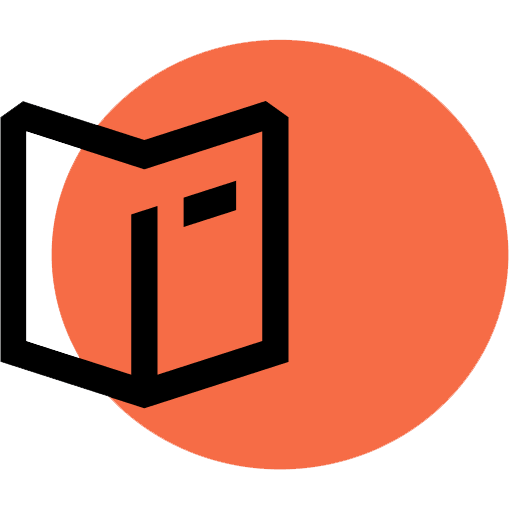10 Latest South Korea Visa Interview Questions in 2025
- Published by Max-B.
- November 6, 2025
- 12 min read
Table of Contents
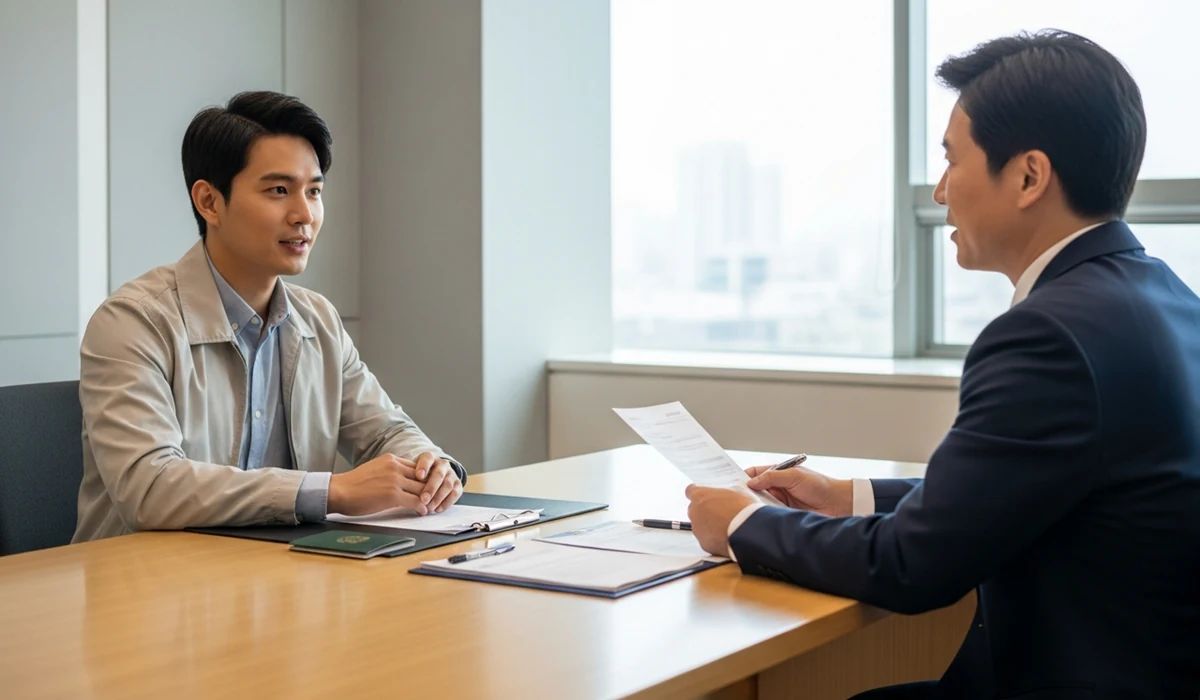
Getting ready for your South Korea visa interview can feel a bit like preparing for an exam you didn’t know you signed up for. Everyone feels nervous before talking to a visa officer. The good news is, most South Korea visa interview questions in 2025 are simple and predictable. The officer just wants to know who you are, why you’re visiting, and if your story makes sense.
Join the Visa Library and learn what to say and how to keep your cool so you walk out feeling confident and not confused.
10 Commonly Asked South Korea Visa Interview Questions
Let’s go through the top 10 most common South Korea visa interview questions in 2025 and talk about what officers look for and how you can answer naturally.
1. What is the Reason for Your Visit to South Korea?
Officers ask this to make sure your purpose matches your visa type. If you applied for a tourist visa but talk about finding work, that’s a red flag. They also listen to see if you sound confident and consistent with your written application.
The best way to answer is to keep it short and specific. For example, “I’m traveling to Seoul for 10 days to visit famous landmarks and try local food.” Or, “I’m visiting my sister in Busan. I’ll stay with her for two weeks.” Avoid unclear answers like “I just want to see how things go.” Or, “Maybe I’ll stay longer if I like it.”
2. How Long do You Plan to Stay in South Korea?
Officers use this South Korea visa interview question to compare your answer with your application form, ticket dates, and hotel booking. If your answer doesn’t match, they may think you plan to overstay.
Be exact and realistic. For example, “I plan to stay for 12 days, from June 5 to June 17.” Or, “I’ll stay for two weeks and have already booked my return flight.” Saying things like “I’m not sure yet” or “It depends on what happens” makes you sound unprepared.
3. Where Will You Be Staying While You are in South Korea?
This South Korea visa interview question helps the officer see that your trip is planned and organized. They expect you to know your accommodation details.
You can say, “I’ll stay at Lotte Hotel in Myeongdong, Seoul.” Or, “I’ll stay with my cousin at her apartment in Daegu.” Don’t say things like “I’ll find something after I arrive” or “My friend will figure it out later.” That shows a lack of planning.
4. How Will You Fund Your Trip, or Who is Sponsoring Your Stay?
Officers ask this South Korea visa interview question to check this to make sure you can afford your trip and won’t run into financial problems. If someone else is paying, they’ll want to know who and why.
Answer clearly and truthfully. For example, say “I work as an engineer and have saved $2,500 for my trip.” Or, “My brother in South Korea will cover my expenses. I have his invitation letter and financial proof.” Avoid saying things like “I’ll manage when I get there” or “My friend said he’ll help, but I’m not sure.” That creates doubt about your stability.
5. What is Your Current Job, or What do You Do for a Living?
Officers ask this South Korea visa interview question to see that you have a reason to return home, such as a job, school, or business. People with stable ties are more likely to follow visa rules.
A strong answer sounds like “I’m an accountant at XYZ Company.” Or, “I’m a student studying at ABC University.” Avoid saying “I don’t do much right now” or “It’s complicated.” That makes your situation look uncertain.
6. Do You Have any Family or Friends in South Korea?
This South Korea visa interview question helps officers understand your connections in the country. If you have family there, it’s fine, but hiding it can cause problems later.
You can say, “Yes, my cousin lives in Seoul and works at Samsung.” Or, “No, I don’t have anyone there. This is my first visit.” Avoid unsure answers like “Maybe, I think someone I know lives there” or “I don’t want to say.” That sounds dishonest or defensive.
7. Have You Visited South Korea or any Other Countries Before?
Travel history tells the officer how responsible you are as a traveler. If you’ve traveled and returned on time before, it builds trust.
If you have traveled, say, “I’ve been to Japan and Thailand for short vacations.” If not, be open about it and say, “This is my first trip abroad, but I’ve traveled around my country often.” Avoid saying things like “I don’t remember” or “That’s private.” Those answers sound careless or suspicious.
8. What Ties do You Have to Your Home Country?
This is one of the most important South Korea visa interview questions. Officers ask it to make sure you’ll return home after your trip. They look for things like work, property, studies, or family.
You can answer and say, “I have a full-time job and live with my family.” Or, “I own a small shop and need to go back to manage it.” Avoid saying things like “Nothing really keeps me there” or “I’ll decide later.” That gives the impression you might overstay.
9. What Activities do You Plan to Do during Your Stay?
They ask this South Korea visa interview question to confirm your plans match your visa. If you mention work or study on a tourist visa, you’ll likely be rejected.
Say what you actually plan to do, like, “I plan to visit Seoul Tower, explore markets, and see Gyeongbokgung Palace.” Or, “I’ll spend time with my family and visit local attractions.” Avoid saying things like “I’ll just go with the flow” or “Maybe I’ll look for a job.” Those comments make officers question your purpose.
10. Can You Show Proof of Your Finances or Accommodation?
Officers use this South Korea visa interview question to check if your documents match your story. They’re trained to notice if something feels off, for example, unclear bank statements or fake hotel bookings.
Keep your papers ready and answer calmly. Say, “Yes, here is my bank statement and hotel reservation.” Or, “Here’s the invitation letter and my sponsor’s financial documents.” Saying things like “I forgot them at home” or “My friend has them” can make them think your story isn’t real.
If you need more help, we are here for you. Visa Library offers Premium Visa Consultation to help you prepare for your South Korea visa interview from start to finish.
2025 South Korea Visa Interview Questions Cheat-Sheet
Officer’s Question | Short Answer Pattern | Best Document to Show |
Why are you visiting South Korea? | “I’m visiting for [tourism/family/work/study] from [start date] to [end date].” | Invitation letter, itinerary, or hotel booking |
How long will you stay? | “[Number of days/weeks], returning on [exact date].” | Flight tickets, itinerary |
Where will you stay in Korea? | “I’ll stay at [hotel name/address] or with [relative name] in [city].” | Hotel booking, lease, or host letter |
How will you fund your trip? | “I’ve saved [amount] from my job/savings.” or “My [sponsor] is paying.” | Bank statements, job letter, or sponsor documents |
What do you do for a living? | “I work as a [job title] at [company].” or “I’m a student at [school].” | Employment letter, student ID |
Do you have family or friends in Korea? | “Yes, my [relation] lives in [city].” or “No, I don’t have anyone there.” | Invitation letter, family proof (if applicable) |
Have you traveled abroad before? | “I’ve visited [countries] for [reason].” or “This is my first international trip.” | Old passports with stamps, travel history |
What ties do you have to your home country? | “I have a [job/business/family] that I must return to.” | Job letter, property papers, family documents |
What will you do in Korea? | “I’ll visit [places/relatives/events] during my trip.” | Travel plan, event tickets, itinerary |
Can you show proof of your finances or accommodation? | “Yes, here are my [bank statements/hotel bookings].” | Bank records, hotel receipts, sponsorship proof |
What Documents Should You Bring?
The interview is not just about answering South Korea visa interview questions; it’s your chance to prove your case by showing:
- Valid passport with at least six months of validity and blank pages
- Completed and signed the visa application form
- Recent passport-style photos that meet size and background rules
- Travel itinerary with flight tickets and travel dates
- Proof of accommodation, such as a hotel booking or a host’s address and letter
- Bank statements, salary slips, or tax records showing you can afford your trip
- Employment letter from your job or student enrollment proof from your school for South Korea student visas
- An invitation or sponsorship letter if someone in Korea is supporting you
- Previous passports or documents showing your travel history
- Extra papers based on your visa type, such as business registration, medical certificate, or relationship proof
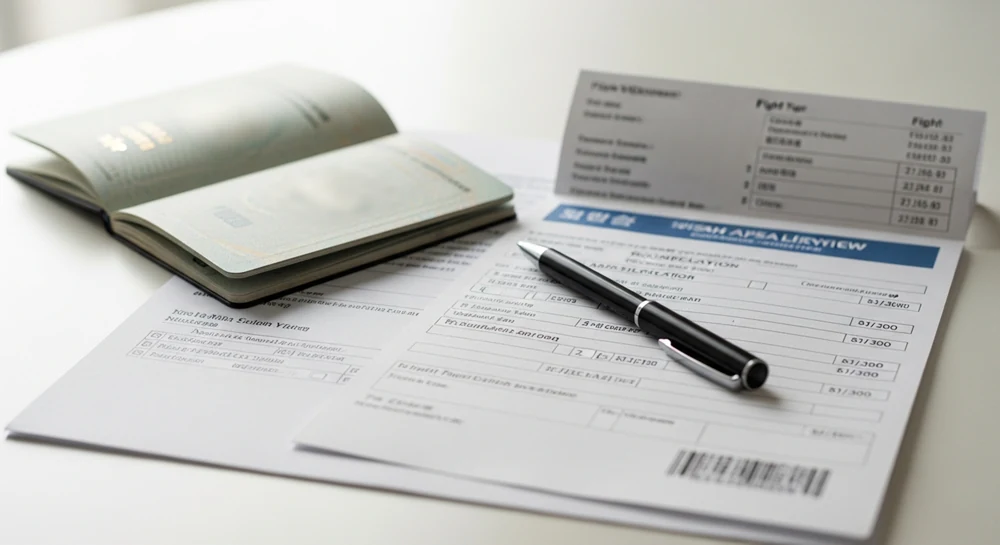
How Do I Prepare for a South Korea Visa Interview?
Here are some tips for a successful Korea visa interview:
- Review your application before you go. Make sure you remember your travel dates, purpose, where you’ll stay, and how you’ll pay for the trip.
- Keep all your documents ready. Bring them in a clear folder so you can hand them over easily.
- Practice simple answers to basic South Korea visa interview questions. Speak calmly and clearly. If you don’t understand a question, it’s fine to ask the officer to repeat it.
- Show that you’ll return home by mentioning your job, school, or family. Officers look for real reasons that tie you to your country.
- Dress neatly, arrive early, and stay polite.
- Avoid memorized speeches or fake stories. The best answers are short, natural, and truthful.
- Avoid guessing or giving unclear answers.
- Smile and maintain good eye contact. It shows respect and confidence.
Red Flags and How to Fix Them
Sometimes small mistakes make officers doubt your story, but they’re easy to fix if you stay calm and honest. Here’s how to handle the most common ones.
- Officers might wonder where the money came from. Just explain it in one line and show proof.
- Example: “This deposit is from selling my old car. Here’s the receipt.”
- If something doesn’t match on your papers, it looks careless. Print a clean copy with the right details and attach a short note saying what you fixed.
- If your host’s letter doesn’t explain your visit clearly, ask them to write a new one. It should include the purpose, dates, and address.
- Time away from school or work can raise questions. Write a simple line that explains it, like: “I stayed home to take care of family from May 2022 to March 2023.” That’s enough.
- Keep your answers short. Say what’s needed, then stop. If you have proof, offer it politely. For example, “Would you like to see the document?”
Tips for Your Dress Code and Body Language
You don’t need to wear a full suit unless the embassy specifically requires it. Just look clean, organized, and respectful:
Item | Good Choice | Why It Helps |
Clothing | Neat shirt or blouse with dark trousers or a modest skirt | Looks professional without being too formal |
Shoes | Closed-toe, polished, and comfortable | Clean shoes give a tidy, respectful impression |
Bag | Simple document folder or slim briefcase | Keeps your paperwork organized and easy to access |
Posture | Sit straight, hands relaxed and visible | Shows confidence, honesty, and attention |
Phone | Turned off or stored away | Prevents distractions and looks more professional |
What to Do After the Interview?
Once you answer the South Korea visa interview questions and your visa interview ends, most of the time, the officer will tell you what happens next. For example, your passport will be kept for processing or returned to you right away. If they keep it, that usually means your application is being reviewed, not that something is wrong.
Check your email or the visa application website regularly. Updates or extra requests often come within a few days. If the embassy asks for more documents (like your job details for South Korea work visas), send them as soon as possible. Quick replies show you’re serious and organized. Also, don’t contact the embassy too often. It won’t speed things up and might cause confusion. Wait until the normal processing time has passed before asking for an update.
If your visa gets approved, review every detail on it (your name, dates, and visa type) to make sure it matches your plans. If something looks wrong, tell the embassy right away. If your visa is denied, don’t panic or argue. Ask politely if you can learn the reason, then review your documents and try again when you’re ready. Sometimes, it’s just about small details you can fix next time.
Let’s Recap
2025 South Korea visa interview questions are about honesty, preparation, and showing that your trip makes sense. If you know your documents, answer simply, and stay calm, you’re already halfway there.
But if you’re still unsure, we’ve got you covered. Visa Library offers Premium Visa Consultation to help you prepare for your South Korea visa interview from start to finish.
If you want expert guidance, clear answers, and a smoother process, book a session with us today and walk into your interview with confidence.
FAQs
What questions are asked in a Korean visa interview?
You’ll be asked about your trip, like why you’re going, how long you’ll stay, where you’ll stay, and how you’ll pay for it.
What if my interview is online or by phone?
Find a quiet place, check your internet, and keep documents close. Speak clearly and answer only what’s asked.
What if I’m worried about language?
Don’t stress. Speak slowly and politely. If you don’t understand, ask the officer to repeat the question.
- Author
- Max-B.
- November 6, 2025

Sign Up to Online Course
Related Articles
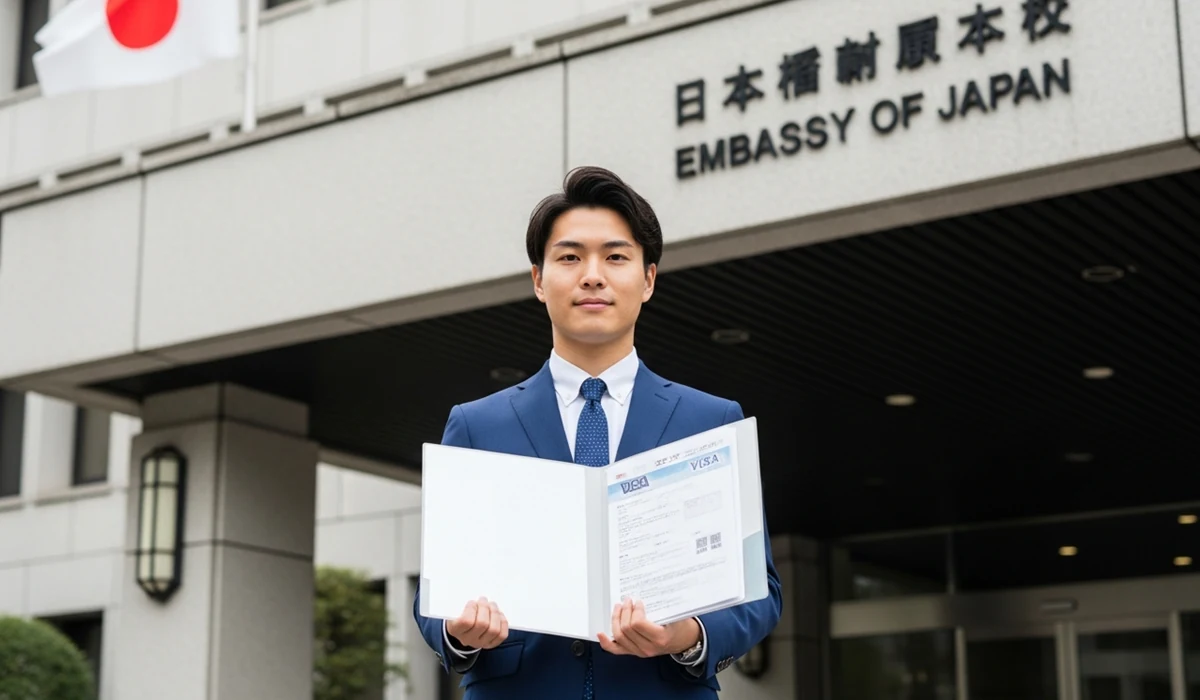
Latest Japan Visa Interview Questions 2025
Applying for a Japan visa can feel stressful, especially if you are unsure what the officer may ask. Every year,

20 Latest Australia Visa Interview Questions in 2025
Getting ready for your Australia visa interview is like waiting for an exam you didn’t study for. It can be
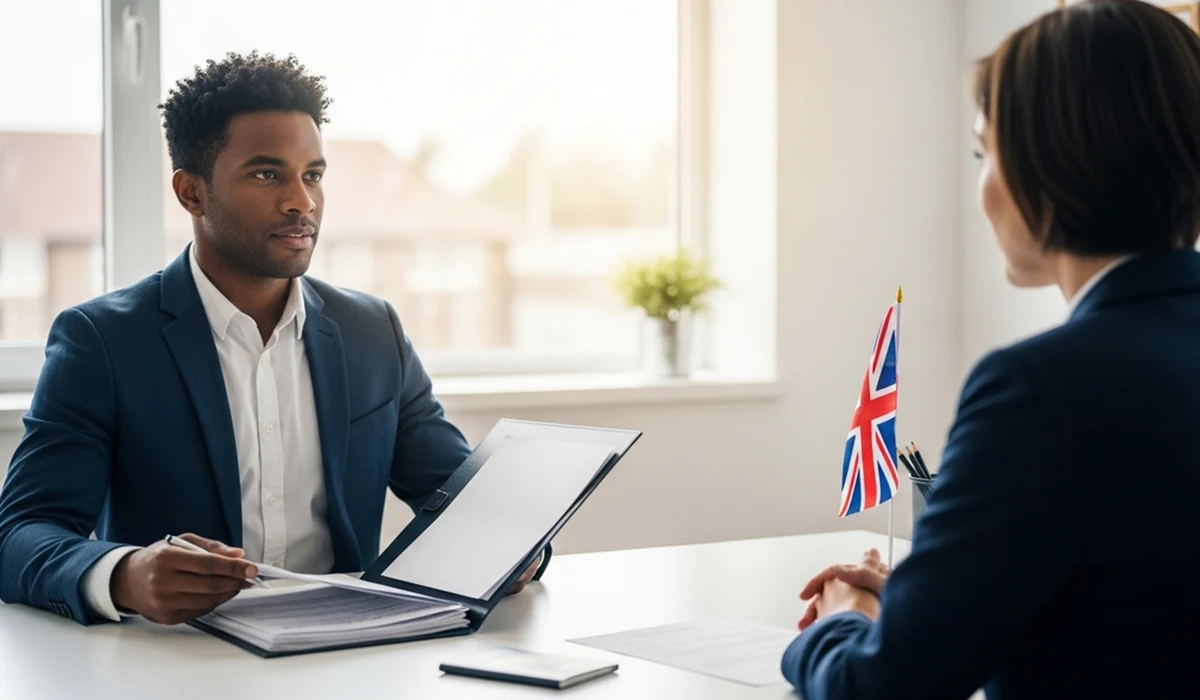
20 Latest UK Visa Interview Questions in 2025 + Simple Answers
During a UK visa interview, the questions, the papers, and the pressure are a lot! But don’t worry. At Visa

